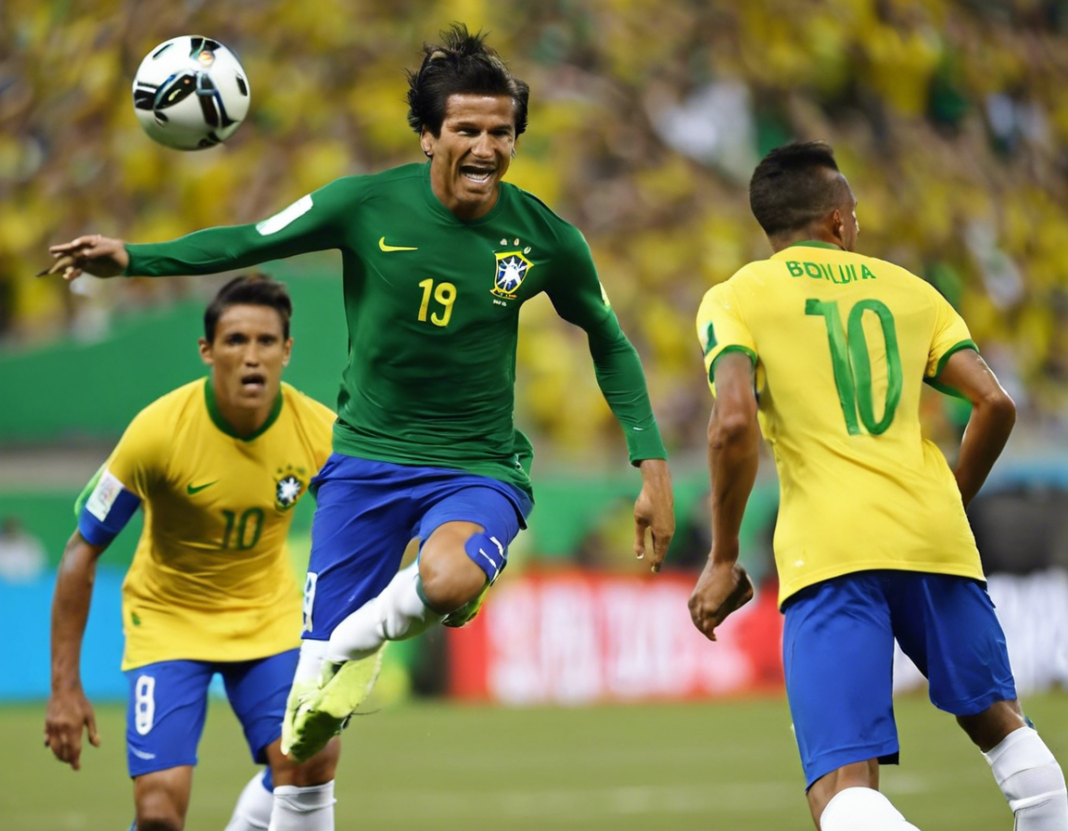As the giants of South American football, Brazil and Bolivia have a rich history of rivalry on the pitch. While Brazil boasts a prolific footballing tradition with multiple World Cup victories, Bolivia has its own unique footballing culture with passionate fans and a competitive spirit. In this article, we will take a detailed look at the current standings of the national teams of Brazil and Bolivia, analyzing their performance in recent tournaments and their prospects for the future.
The Team Performance
Brazil
Brazil is one of the most successful national teams in the world, having won the FIFA World Cup a record five times. The team is known for its attacking style of play, skillful players, and a rich footballing heritage. In recent years, Brazil has continued to dominate on the international stage, with star players like Neymar, Philippe Coutinho, and Gabriel Jesus leading the charge.
In the most recent Copa America tournament, held in 2019, Brazil emerged victorious by defeating Peru in the final. The team showcased their defensive solidity and attacking prowess throughout the tournament, reaffirming their status as one of the top teams in the world.
Bolivia
On the other hand, Bolivia may not have the same illustrious history as Brazil, but they have a strong footballing tradition in South America. The national team is known for its resilience and fighting spirit, often causing upsets against more fancied opponents.
However, Bolivia has struggled to make a significant impact in recent international tournaments. Their last major success was winning the Copa America in 1963, and since then, they have found it challenging to compete against the top teams in South America.
Current Standings Comparison
When we look at the current FIFA rankings, Brazil is currently ranked 2nd in the world, highlighting their position as a footballing powerhouse. On the other hand, Bolivia is placed 81st in the rankings, showcasing the challenges they face in competing at the highest level.
In terms of recent form, Brazil has been in impressive form, with a series of convincing victories in World Cup qualifiers and friendly matches. The team’s cohesive style of play and depth in squad have been key factors in their success.
Bolivia, on the other hand, has struggled in recent matches, with a lack of consistency and firepower in front of goal. The team is undergoing a period of transition, with new players being introduced to the squad in a bid to improve their performances.
Future Prospects
Looking ahead, Brazil looks well-positioned to maintain their status as a top team in world football. With a talented generation of players coming through the ranks and an experienced coach in Tite, the team has high hopes for the future. The next FIFA World Cup in Qatar presents an opportunity for Brazil to add to their impressive trophy cabinet.
For Bolivia, the focus will be on building a competitive team that can challenge the top teams in South America. The national federation is investing in youth development and infrastructure to improve the quality of players coming through the ranks. While it may be a challenging road ahead, Bolivia’s footballing spirit and passion give hope for a brighter future.
Frequently Asked Questions (FAQs)
1. How many times has Brazil won the FIFA World Cup?
Brazil has won the FIFA World Cup a record five times, in 1958, 1962, 1970, 1994, and 2002.
2. Who is the all-time leading goalscorer for the Brazil national team?
The legendary Brazilian striker, Pele, is the all-time leading goalscorer for the Brazil national team.
3. When was Bolivia’s last major international success in football?
Bolivia’s last major international success in football was winning the Copa America in 1963.
4. Which Brazilian player is currently the captain of the national team?
The current captain of the Brazil national team is Neymar, who is also one of the team’s star players.
5. What are the key challenges facing the Bolivia national team?
The key challenges facing the Bolivia national team include a lack of consistency in performances, a need for improved infrastructure and youth development, and competitiveness against stronger teams in South America.
In conclusion, while Brazil and Bolivia have contrasting footballing histories and current standings, both teams have a unique identity and passion for the beautiful game. As they continue their respective journeys in international football, fans can look forward to thrilling encounters and exciting developments in the years to come.
